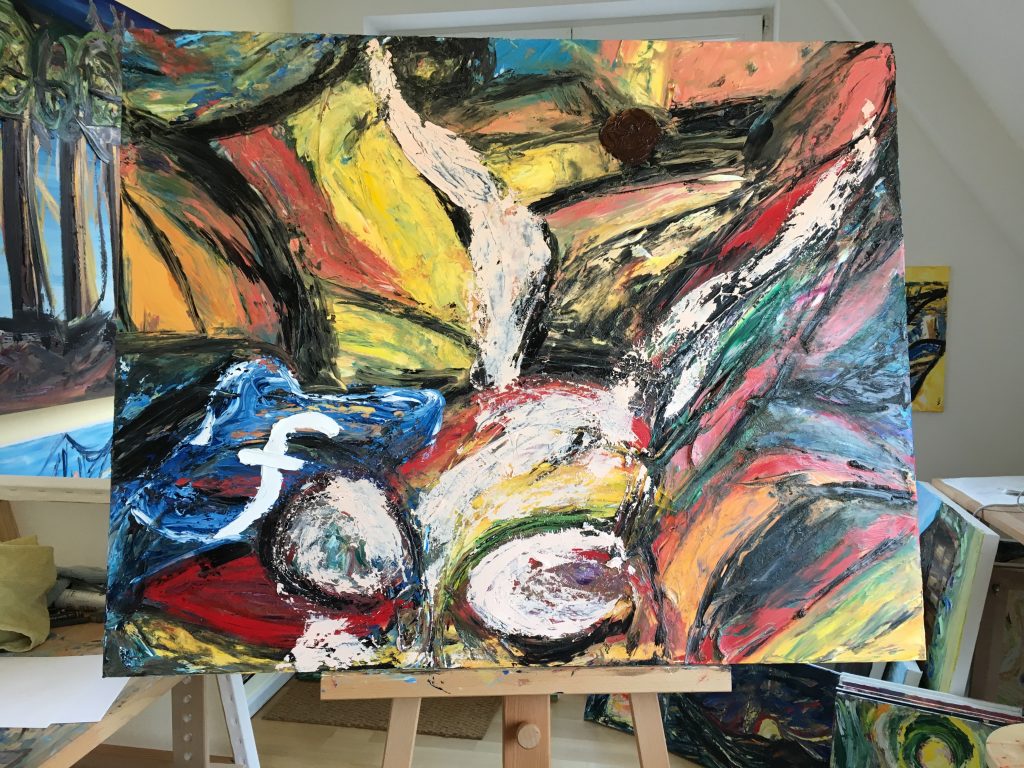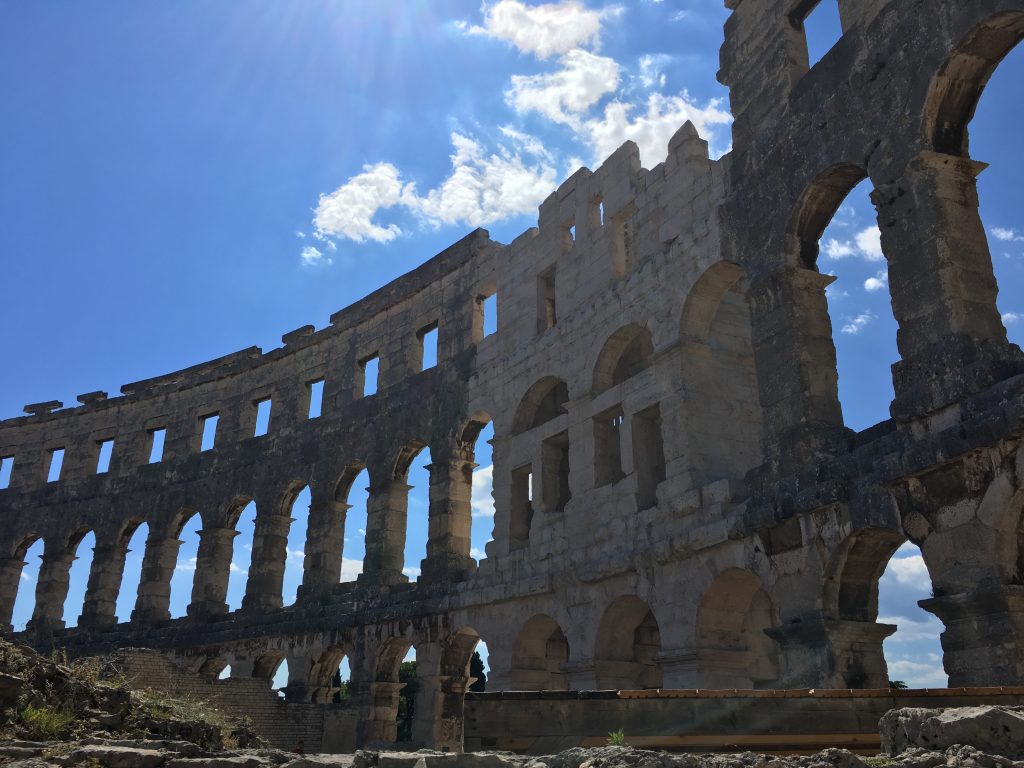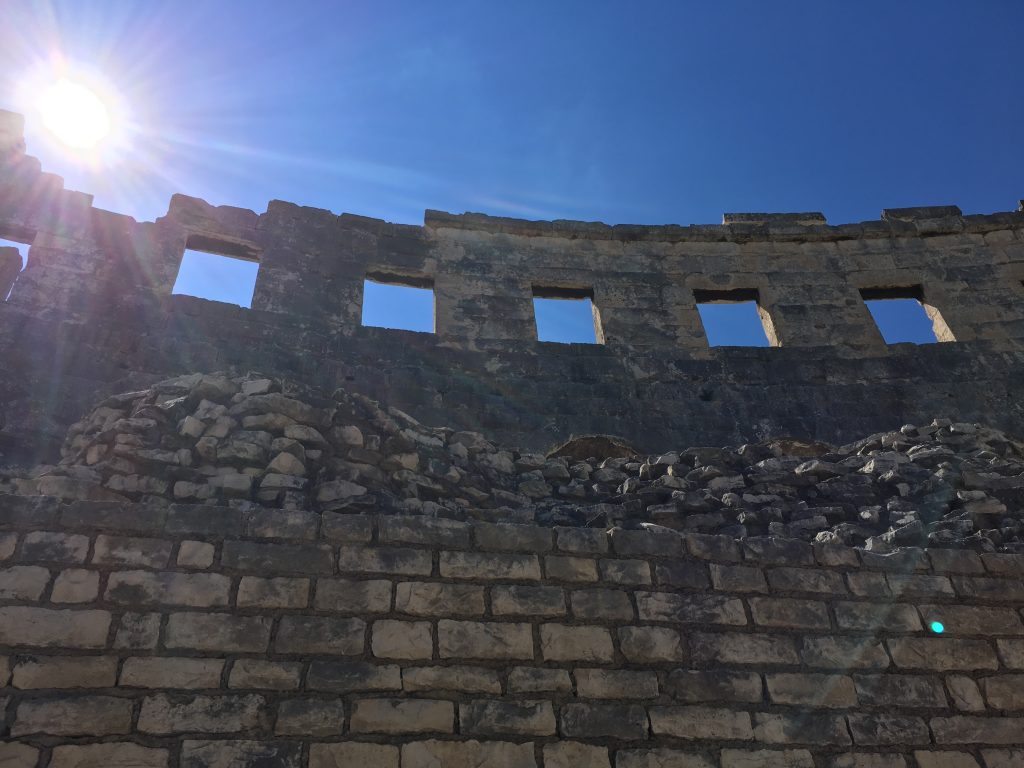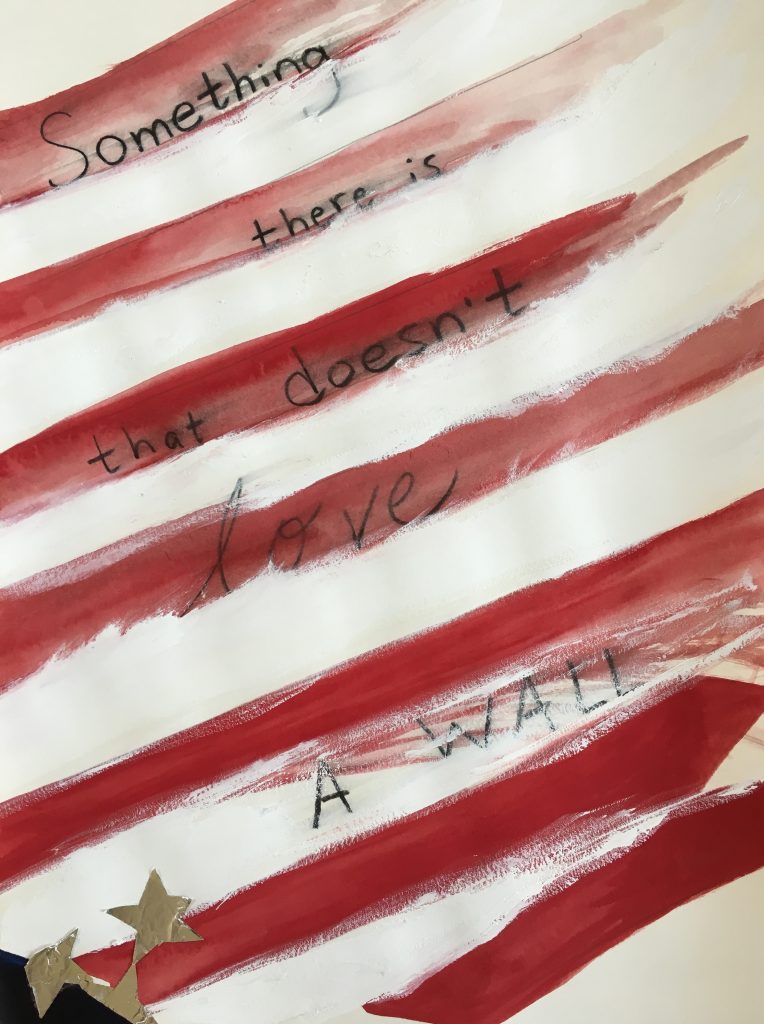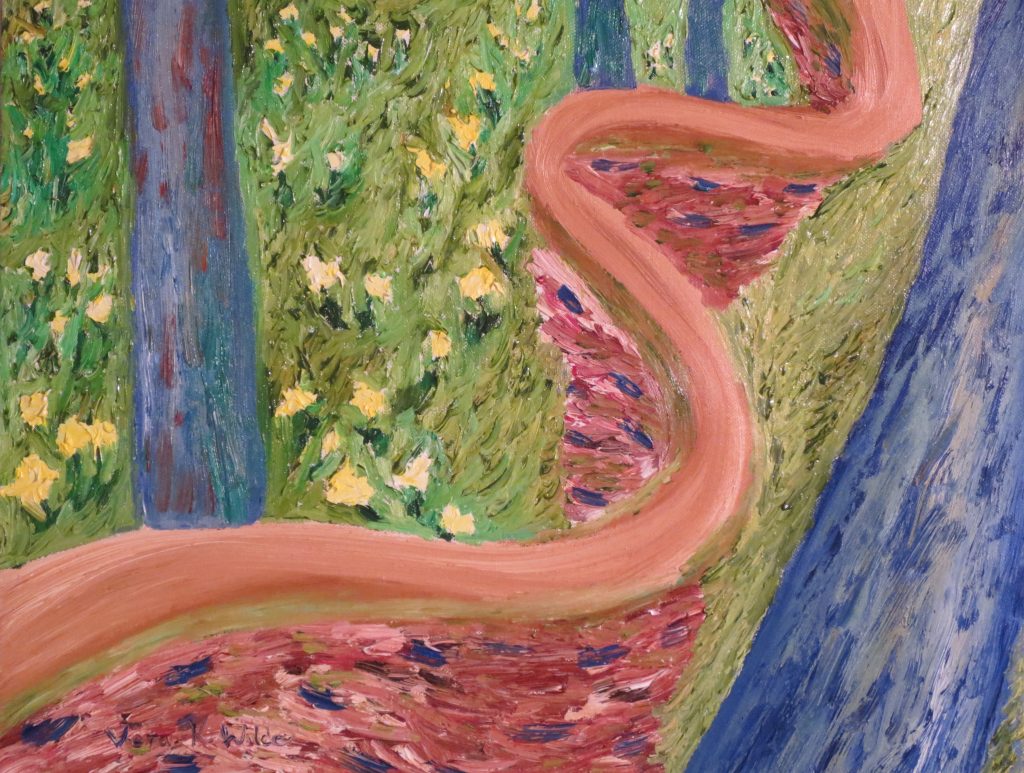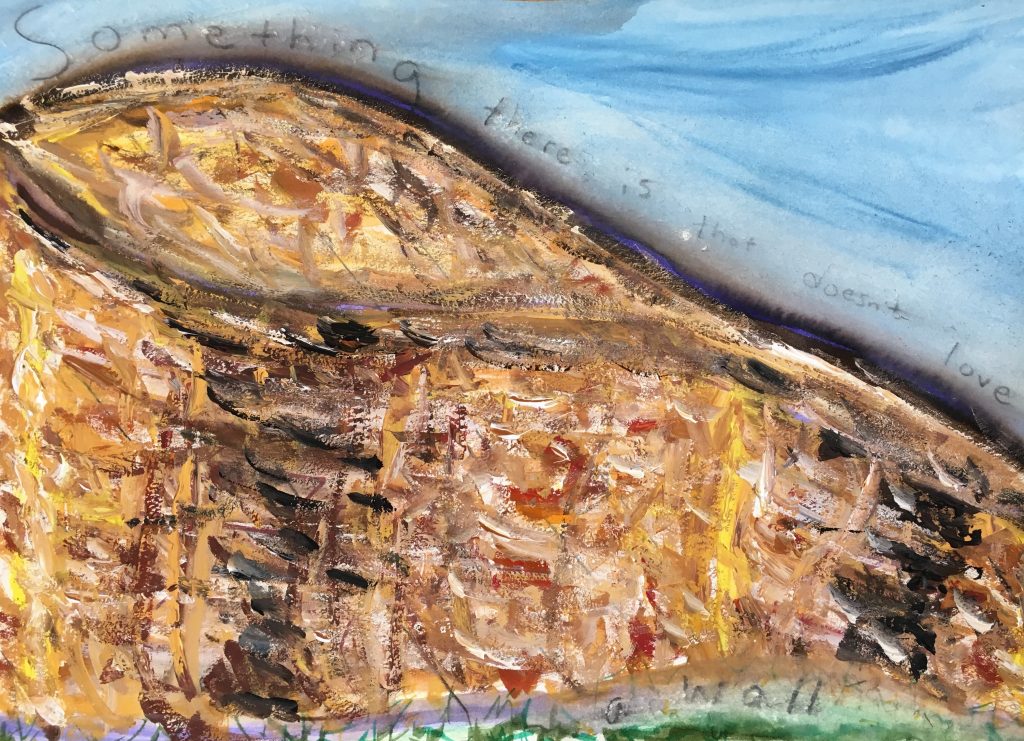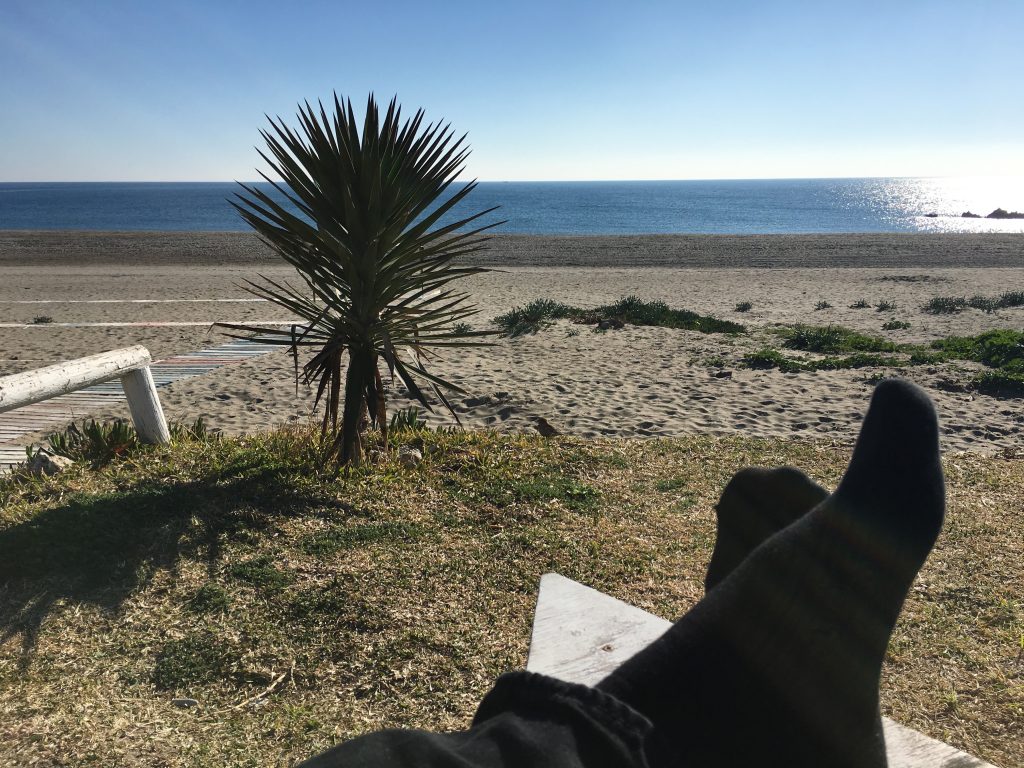Recently a dear friend asked for my chicken recipe. As I only keep secrets that need keeping, I wrote it out for her. But I got a little carried away and wrote it like I used to write Reviews of New Food for McSweeney’s—which is to say, snarkily. Then I submitted it to McSwy’s, even though I hadn’t written for them in years. And they took it!
I was so excited that I wrote another review immediately, which the editor kindly pointed out was lovely but longer than what they normally publish. So I cut it by half, and the editor kindly pointed out it was more of a straight-up recipe than what they normally publish. That was when I realized I had forgotten to review in my reviews. Here’s the longer-still rewrite, which remedies that error.
I do, however, really like writing straight-up recipes and wonder if people might want them, too. After finishing my second poetry book, I’d really like to write something with more of an audience. So I wonder if that sort of a (gluten-free, oddball) cookbook project might be it.
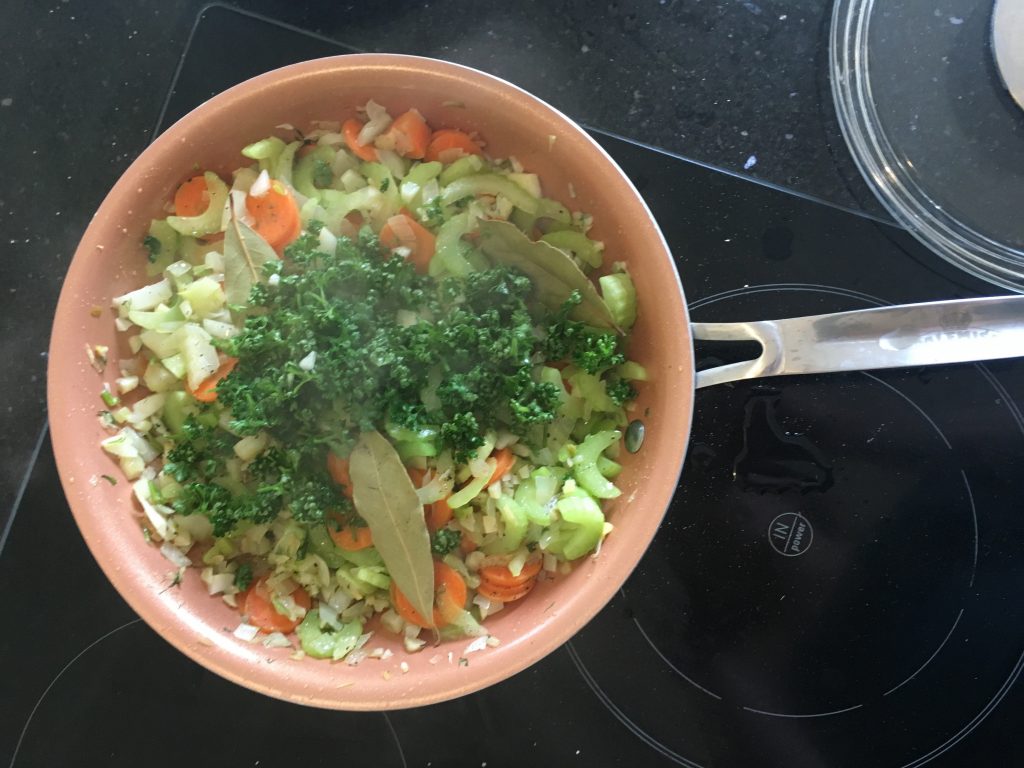 This is mirepoix. It goes in (almost) everything.
This is mirepoix. It goes in (almost) everything.
“Seafood Bisque”
When I was a little girl, before my parents divorced, my abusive alcoholic father abandoned the family, and my mom got sicker and sicker—in short, before everything fell apart—we drove from the white-flight suburbs an hour and a half outside Birmingham, Alabama to the Atlantic coast of Florida, all the way to the paradisiacal beaches of Ponte Vedra near my parents’ hometown of Jacksonville, every summer I can remember. The drive would take a few days, in which my older brother and I would make shaky backseat peaces with Pez and Tchaikovsky’s life story would replay on cassettes so hot the smell of melting plastic still reminds me of Swan Lake.
All happy families, Tolstoy wrote, are happy in the same way. But all unhappy families develop their own reward systems for surviving each other on summer vacation. There in paradise, my dad would get as drunk as possible as often as possible, my mom would walk the pristine white beaches trying not to cry, and I would collect dozens upon dozens of purple shells that looked like painted half-moon fingernails. No one could ever tell me what they were called, so I named them pestañas, the Spanish word for eyelashes, because it’s pretty and sounds purple. (Google says they’re called tellins.) I don’t know what my brother did there, since he didn’t like playing or talking with me, a preference I used to think of as cold but now understand as Aspergiac.
Then we would all reconvene for a special dinner at a special club over a Japanese bridge over a man-made pond with snapping turtles that my dad joked would be in my soup, and eat luscious seafood bisque (cream soup) with diabetical Southern sweet tea. That soup tasted like butter, milk and honey, crab meat, better booze than I got sips of in my dad’s orange juice, and, quite possibly, turtle.
Times have changed. Now we know what to call my brother’s strangeness (high-functioning autism), and possibly my own; as well as our mother’s long and difficult illness (lupus). But of other people one says little, except that they have managed heroically to leave the shared muddle of our past and be whole, although it has required becoming wholly different and wholly apart. My brother and I independently changed our names during one of the stretches of months or years when we were not speaking. (I think I was first, but he wouldn’t give me a date the last time he would speak to me, which was already some time ago.)
For myself, I have managed this appearance of starting anew with no small number of aids—a brilliant and loving partner’s support in a new career on a new Continent under my new name, for example. It is sometimes said that a son grows up and leaves you, while a daughter is forever; so I spent a long time being a good daughter, after which I became a happier son. I am a pre-op trans-Continental. As a hip bastion of radical artsy sciencey LGBTQIAOHNOES, my household intermittently nerds out about ketosis, keeping sugar in the forbidden cabinet originally designated for glutenous fare, cold medication, and God. And as I moved about as far away from the U.S. South, culturally speaking, as you can get without learning Norwegian, I have learned to make my own soup—my way.
This learning did not start with old recipes, or other things I carried. The things I did not leave at first fit in a backpack. I did not miss anything else. But eventually, with the help of a very few and dear friends, I sent for more: the tapes of interviews I had conducted as a curious artist and early grad student, before turning my PhD research focus to their topic—polygraphs, or “lie detectors”; the oil paintings that I hadn’t given up, sold, or had stolen by the man who agreed to take them from the storage unit I could no longer afford to display in his AirBNBs, as a favor to us both; and at last the better flavors of my childhood—cajun spices, blackened meat, and seafood bisque.
I had hoped to turn up but never did, and still don’t know what happened to, my 500+ tellins, although I now suspect they must have been lost a decade earlier, in the emergency one-way ticket to Alabama move of ’04, when my mom’s lease was up and she was too sick to manage, so I brought her up to college with me. She slept on the sofa with mysterious bruises and rages—a different person than the mom I knew. I missed her too much to love her. No one said lupus never presents without neuropsych problems. No one said it was lupus; we figured it out. (She credits me, and I credit Isabel; but it’s patients who have the answers.) My flatmate moved out. The flirtatious older professor saw his opportunity. And there went my 20s.
Leaving everything behind was something I tried to do many times, and finally managed only under that great expatriating duress that turned out to be much more blessing than curse. Also curse. But more blessing.
Similarly, the long-undiagnosed gluten allergy that kept me accidentally skinny into my late 20s seems to have also damaged my esophagus permanently, so that I am physiologically incapable of burping—when I drink too much fizzy stuff, my throat growls all night like a bullfrog in heat—and have had to learn to cook anew several times. This was not fun when back in grad school, I was crying from intense, hyperthyroid hunger at 2:30 a.m., having lost 15 pounds and half my hair in a month, and did not know what to feed myself to keep the hunger pain at bay because everything I used to cook had gluten.
But now that my arsenal of quick snacks and full meals is fleshed out again, I can enjoy the fluidity of cooking favorites on automatic—that Zen of flow in doing something I know how to do and like doing. As well as the challenge of trying something new and complicated—like cobbling together fifteen recipes while improvising to make this soup. And making it gluten-free like I make everything, as well as low-carb like I make most things. The blessing of learning to cook and eat healthier from the curse of medically having to. That is the newness of the food here, although it is an old childhood memory I’m remaking, recipe-constructing, and reviewing at last.
***
All good seafood soups start with a strong fish fumet, or fresh stock (clear bouillon) made from boiling an enormous pot of bones and/or shells. The bones, and the fish flesh you’ll need later, must be from non-oily fish, like cod. And you cannot walk into the grocery store and ask the butcher to sell you his seafood throwaways for thirty cents, like you could when—oh my God, it’s happening—I was a little girl. I’m only 33! I think.
Anyway, grocery stores these days—oh my God, it’s really happening!—don’t sell you fish bones and shrimp or crab shells for soup. At least not anywhere I could find in Berlin, Germany. For that, I discovered after striking out four times and asking a local, you have to go to a Fischladen (fishmonger), like the aptly named Der Fischladen. And you have to call to order your kilo of carcasses a day ahead, since not many people do this. And you shouldn’t do it on a Friday or weekend, because they’re busy.
Some recipes call for pouring a half bottle of white wine over the carcasses before boiling away, but this is a waste as adding a smaller amount of wine to the soup later retains more of the flavor (and leaves more wine for drinking). The same goes for the oft-advised addition of “aromatics” (veggies and spices) to the bone broth. It’s more flavorful if you wait and, after the full pot has boiled down to a stock (which takes a few hours in a four-liter pot), separately sauté the veggies and spices. I use a modified mirepoix (French diced and sautéed veggie flavoring) of garlic, onions, fennel, carrots, celery, and parsley (in order of cook time), with 3-5 bay leaves and cajun spices—here, a mixture of vegan bouillon in place of salt, plus freshly ground black pepper, paprika, cayenne, thyme, and oregano, to taste.
When a fork mashes through the carrots easily enough, put the mirepoix in a blender (sans bay leaves). Then strain the fumet into a smaller pot. Add some of it to the veggies in the blender. Blending the veggies thickens the soup without adding flour. You can use this trick in most soup and casserole recipes. It takes half an hour or so, but adds a lot of flavor (and probably some nutrition) along with its thickness. In theory, you can make a huge batch of mirepoix ahead of time to add to different dishes bit by bit. But I’m lucky enough to be able to spend time relaxing in the kitchen; there is something incomparably peaceful for me about making fresh food in smaller batches.
The last time I made (or attempted to make) this bisque, I had forgotten to get shrimp because I was too distracted flirting with the cute, sweet Italian guys at Der Fischladen (hi Angelo, hi Daniele) after a wonderful dinner date with my hot, sweet boyfriend (and a bathtub-sized glass of wine). (Or maybe I’m just getting old and forgetful… Omg, it’s happening.) Made this way, it’s still a lovely soup, but lacks the full flavor of my childhood memory. It really needs both fish bones and shells in the broth, and fish meat and shell meat in the soup. Four out of five friends who have never heard of Ponte Vedra agree, but only after a bathtub-sized glass of wine. The fifth one thinks it needs turtle.
Sauté the meats while the fumet and vegetables blend. Then combine some of the remaining fumet with the blended fumet-vegetable mixture—as much as you need to get the consistency almost right, but still too thick for soup. Then add about a cup of cream, half a cup of white wine, and four or five ounces of cooking sherry. Every other recipe you can find will say to use 1-2.5 ounces, but these recipes are empirically wrong. It is also important to test the sherry while cooking, to be sure it has not turned communist while living in Europe.
When the fish is cooked so that it falls apart, take it off the heat long enough to crumble it into the soup, removing any remaining bones with your fingers. Chop the shrimp or crab meat and add it, too. Squeeze in a few lemon slices at the last minute. Let cool before chilling, reheating for lunch the next day, and taking some in Tupperware to share with the nice fishlads and other friends. Most seafood is best fresh, but this bisque gets better every day for the few days it lasts, the flavors seeping together like a new lover getting comfortable. It tastes like that lasting pleasure of connection not everyone experiences with birth family, but if we’re lucky we find later in good company and in bed, maybe even at the same time.
But first thing after serving the first night’s soup: Take out the trash. Yesterday’s boiled bones and fishheads stink. There is nothing left to do with them. There will always be people who think you still need to catalog them or something, just because you’ve made some soups in your day. They will demand details, or suggest treatments and mantras, all focused on doing more with the used-up bits you’ve already picked clean and then boiled for soup. Forgive them; which is to say, forget them. They didn’t have what you had, and they haven’t made what you made of it. They don’t know that’s just not how cooking works, that’s not how bones work, that’s not what feeding people is all about. Just smile and tell them you’ve already made that soup. And you already gave away the last bowl.
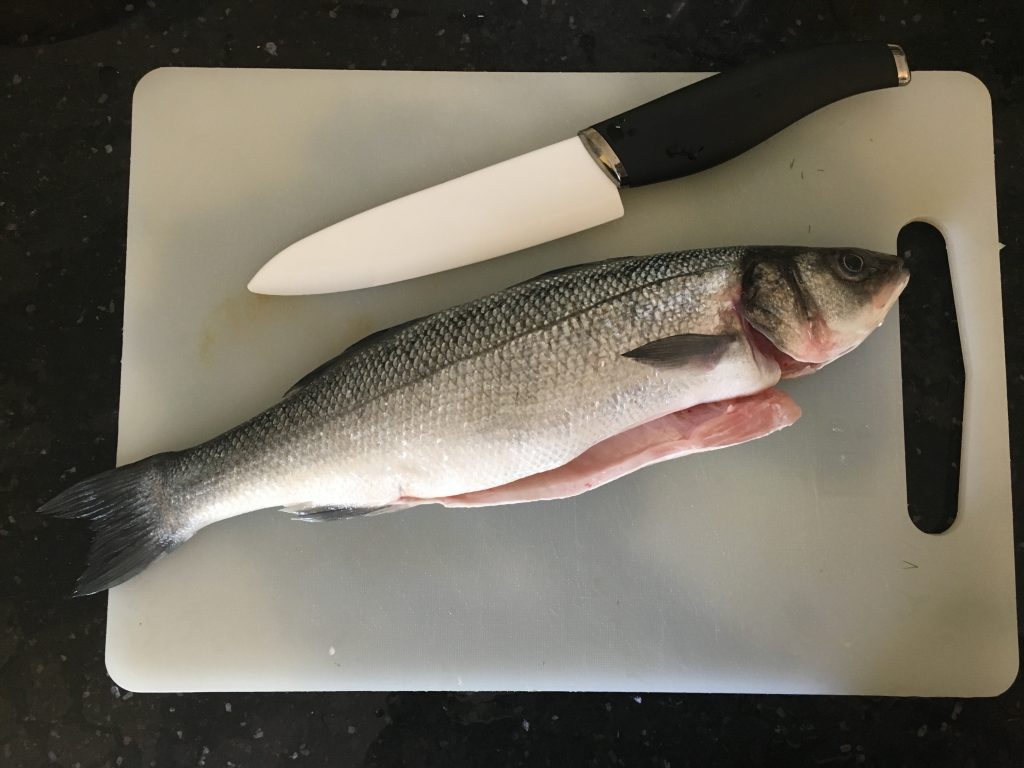
This is Fred. He makes soup.
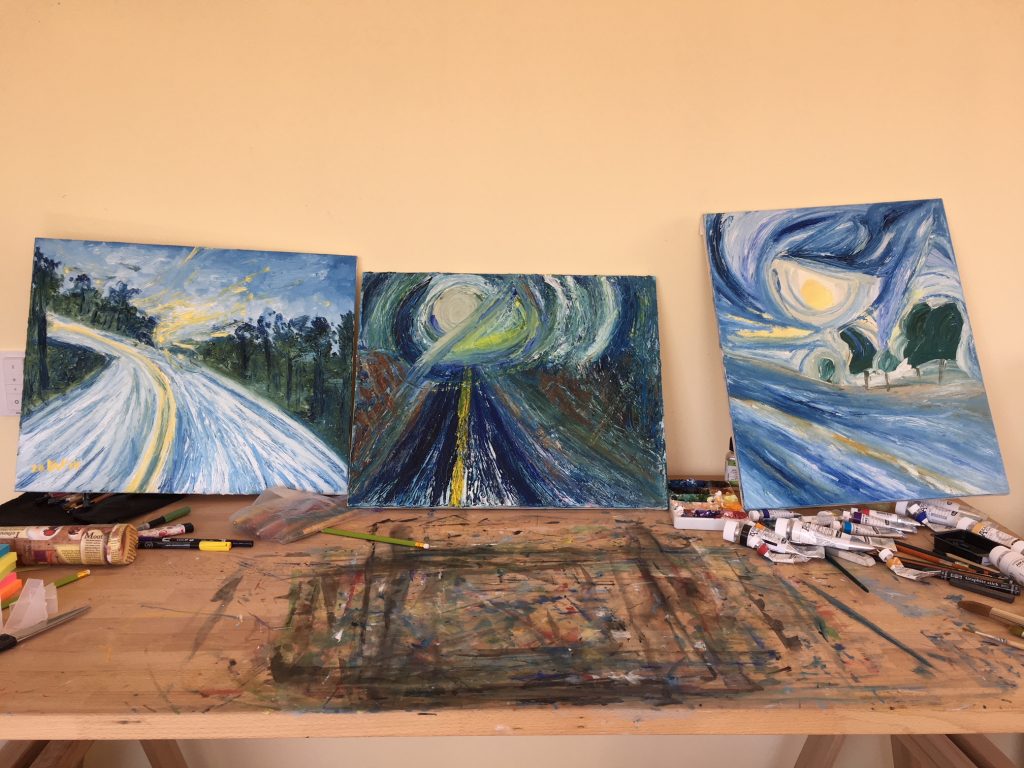 Oils on 16″ x 20″ stretched canvas, 2014-5, Boston. From a series of five in which the best one was in the stolen batch, and another I just gave away. I guess I should have a go at the “road like fire” concept anew one of these days.
Oils on 16″ x 20″ stretched canvas, 2014-5, Boston. From a series of five in which the best one was in the stolen batch, and another I just gave away. I guess I should have a go at the “road like fire” concept anew one of these days.